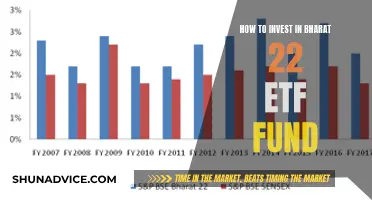
Private investment funds are investment companies that do not solicit capital from retail investors or the general public. They are not required to be registered or regulated as investment companies under federal securities laws and are not subject to regular public disclosure requirements. Private investment funds are typically open only to accredited investors and qualified clients, including institutional investors such as insurance companies, university endowments, pension funds, and high-income and net worth individuals. The funds are pools of capital to be invested in companies that represent an opportunity for a high rate of return, with a fixed investment horizon, typically ranging from four to seven years.
| Characteristics | Values |
|---|---|
| Definition | A private investment fund is an investment company that does not solicit capital from retail investors or the general public. |
| Types | Hedge funds, private equity funds, venture capital funds, and buyout or leveraged buyout funds are some of the most common types of private investment funds. |
| Investors | Private investment funds are open to accredited investors and qualified clients, including institutional investors such as insurance companies, university endowments, pension funds, and high-income and net worth individuals. |
| Investment Strategy | Private equity funds often focus on long-term investment opportunities in assets that take time to sell, with an investment horizon of 10 or more years. They may take a controlling interest in a portfolio company and actively manage and direct it to increase its value. |
| Regulation | Private investment funds are not required to be registered or regulated under federal securities laws and are not subject to the same public disclosure requirements as public funds. They have more freedom in reporting, redemption, and investment strategies. |
| Advantages | Private investment funds offer the potential for higher returns due to minimal investment constraints and a wider investment universe. They also provide diversification benefits and reduced portfolio volatility. |
| Risks | Private investment funds are less regulated, less transparent, and illiquid. They require funding commitments that are called over time, and there may be lost opportunity costs due to sporadic investment opportunities. |
| Popularity | Private investment assets under management grew from $4.1 trillion in 2010 to $10.8 trillion in 2019 and are expected to reach $17.2 trillion by 2025. |
What You'll Learn

Private investment funds are not open to retail investments
A private investment fund is an investment company that does not solicit capital from retail investors or the general public. Members of a private investment company typically have deep knowledge of the industry as well as investments elsewhere.
Private investment funds are not required to be registered or regulated as investment companies under federal securities laws. They cannot publicly offer their securities. Private investment funds are also not subject to regular public disclosure requirements. This means there is no public reporting of positions for private investment funds, allowing them to avoid tipping off the market and eroding the profitability of a carefully built position.
Private investment funds are limited to a certain number of investors, depending on the type of fund. In the US, a 3C1 fund can have up to 100 accredited investors, while a 3C7 fund can have a soft limit of around 2,000 qualified investors.
Accredited investors need to have more than $1 million in net worth, excluding their primary residence, and/or $200,000 in annual income for an individual and $300,000 for a couple. Qualified investors must hold assets in excess of $5 million.
Strategies for Running a Successful Investment Fund
You may want to see also

They are less regulated and less transparent
Private investment funds are less regulated and less transparent than public funds. Private investment funds are not required to publicly report their investment positions or returns. This means that very little information is available to potential investors, making it critical that they undertake an extensive due diligence process. The lack of regulation also allows investment managers to employ riskier strategies, use more complex legal structures, and keep returns and investment strategies private. For example, many hedge funds are private investment funds so they can continue to use aggressive trading strategies that would be too risky for a public fund.
The lack of transparency and regulation has resulted in private investments being limited to higher-net-worth investors such as institutions, "qualified purchasers", and "accredited investors". Accredited investors need to have more than $1 million in net worth, excluding their primary residence, and/or $200,000 in annual income for an individual and $300,000 for a couple. Qualified investors must hold assets in excess of $5 million.
Private equity funds are a type of private investment fund that pools capital to be invested in companies that represent an opportunity for a high rate of return. They come with a fixed investment horizon, typically ranging from four to seven years, at which point the private equity firm hopes to profitably exit the investment. Exit strategies include IPOs and the sale of the business to another private equity firm or strategic buyer.
Another example of a private investment fund is a venture capital fund, which pools capital that typically invests in small, early-stage, and emerging businesses that are expected to have high growth potential but have limited access to other forms of capital. These funds carry risks from investing in unconfirmed emerging businesses, but they can generate extraordinary returns.
Equity Funds: When to Invest for Maximum Returns
You may want to see also

They are not required to publicly report their investment positions or returns
Private investment funds are investment companies that do not solicit capital from retail investors or the general public. They are not required to publicly report their investment positions or returns. This means that very little information is available to potential investors, and it is critical that they undertake an extensive due diligence process. Private investment funds are not subject to the same regulatory and legal requirements as public funds, and they have more freedom in how they handle reporting and redemptions. This allows them to consider illiquid investments that a public fund would avoid due to the challenges of regular valuation and liquidation.
Private investment funds are often used by extremely wealthy families to manage their wealth. They can create personal investment companies with family members as shareholders, investing the family's wealth without the need for outside capital. As a result, there is no incentive to take the fund public.
Private equity funds, a type of private investment fund, are pools of capital invested in companies that represent an opportunity for a high rate of return. They are typically open only to accredited investors and qualified clients, such as institutional investors and high-net-worth individuals. The lack of public reporting allows private investment funds to keep their investment strategies private and avoid tipping off the market, which could impact the profitability of their positions.
The lack of regulation and transparency in private investment funds has resulted in their being limited to higher-net-worth investors, such as institutions, "qualified purchasers," and "accredited investors." These investors must meet certain wealth tests, such as having a net worth of more than $1 million or annual income of $200,000 for an individual and $300,000 for a couple.
Mutual Funds: How Much Investment is Too Much?
You may want to see also

They are limited to higher-net-worth investors
Private investment funds are limited to higher-net-worth investors, often referred to as "qualified purchasers" or "accredited investors". This is due to several risk characteristics associated with private investments.
Firstly, private investments are typically less regulated and less transparent than public market investments. Private investment funds are not required to publicly report their investment positions or returns, resulting in limited information being available to potential investors. This lack of regulation also allows investment managers to employ riskier strategies and utilise more complex legal structures.
Secondly, private investments are often illiquid, with investment horizons ranging from 3 to 10 years, depending on the strategy. This means that investors' capital may be tied up for extended periods, and there may be difficulties in liquidating investments during times of economic stress.
Additionally, private investments require funding commitments that are called over time. Capital is not usually called all at once, and sporadic investment opportunities can lead to lost opportunity costs as capital waits to be called.
The risks associated with private investments are mitigated by the potential for enhanced returns due to minimal investment constraints and a wider investment universe available to investors. Private investments can also provide diversification benefits, as they often have a low correlation to the public market, reducing overall risk exposure and portfolio volatility.
As a result of these factors, private investment funds are generally limited to higher-net-worth investors who can bear the associated risks and have the financial means to meet the high initial investment amounts and funding commitments.
Navigating Investment Funds: Knowing When to Change for Success
You may want to see also

They can be vehicles of choice for handling significant family wealth
Private investment funds are investment companies that do not solicit capital from retail investors or the general public. They are not open to retail investments and are not required to publicly report their investment positions or returns. Private investment funds are not subject to the same stringent regulatory and legal requirements as public funds, and they enjoy greater freedom in reporting, redemption processes, and investment strategies.
Private investment funds can be particularly useful for handling significant family wealth. Wealthy families can create personal investment companies, with family members as shareholders, to manage their wealth. This is often done by repurposing an existing company structure to create a capital investment arm, funded by the profits of the business. The family does not need outside capital, so there is no incentive to take the fund public.
Private investment funds offer flexibility and freedom from the scrutiny of public reporting. They can be used to invest in high-risk assets that would not be available to public fund managers. For example, hedge funds can employ aggressive trading strategies and sophisticated techniques like short-selling, derivatives, and leverage. Venture capital funds can also provide the opportunity to invest in equity at the earliest stages of a private company.
However, private investment funds also come with higher risks. They are less regulated, less transparent, and more illiquid than public investments. Private investment funds are limited to higher-net-worth investors, such as institutions, qualified purchasers, and accredited investors. The long-term nature of private investments, typically ranging from 3-10 years, can make it difficult for investors to access their capital during this period.
Index Funds vs Roth IRA: Where Should You Invest?
You may want to see also
Frequently asked questions
A private investment fund is an investment company that does not solicit capital from retail investors or the general public. Members of a private investment company typically have deep knowledge of the industry as well as investments elsewhere. Private investment funds are not required to publicly report their investment positions or returns.
Hedge funds and private equity funds are two of the most common types of private investment funds. Other examples of private investment fund sectors include private credit, real estate, natural resources, infrastructure, and venture capital.
Private investment funds are attractive to investors because they offer the potential for high risk-adjusted and absolute returns. They also provide greater diversification benefits and enhanced returns compared to the public market.







